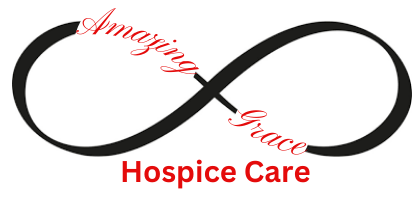Why Hospice?
- Hospice offers help and support to the patient and their family on a 24-hour-a-day, seven-days-a-week basis. Patients routinely receive periodic in-home services of a nurse, home health aide, psychosocial professional, and other members of the hospice interdisciplinary team.
- Hospice treats the person, not the disease. Hospice professionals and volunteers address the medical, social, psychological, and spiritual needs of the patient and family.
- Hospice considers the entire family, not just the patient, the "unit of care." Patients and families are included in the decision-making process, and bereavement counseling is provided to the family following the death of their loved one.
- Hospice offers palliative, rather than curative treatment. Sophisticated methods of pain and symptom control enable the patient to live as fully and comfortable as possible.
- Hospice emphasizes quality of life, rather than length of life. Hospice neither hastens nor postpones death: it affirms life and regards dying as a normal process.
- Hospice is a covered benefit under Medicare, Medicaid, and most private insurance plans.
Amazing Grace Hospice Philosophies
- We believe Hospice affirms life, health, and the dignity of persons in situations of terminal illness.
- We believe it is possible that the period of terminal illness can be one of achievement, reconciliation, and fulfillment of the dying patient and family.
- We believe that Hospice care should be available to any person regardless of race, color, creed, handicap, age, sex, religion, or economic status.
- We believe that when cure is no longer an appropriate goal, palliative care and support become the appropriate goal.
- We believe that the Hospice program of care can provide support and aid in the alleviation of human suffering.
- We believe that the terminally ill patient should be maintained as pain-free as possible and alert in his home environment as is medically possible.
Features of Hospice Program
- The patient and family represent the primary unit of care.
- Care will be provided in the home by the Hospice care team.
- Care is provided during regularly scheduled visits, however assistance is available 24 hours a day.
- Services in the home are palliative rather than curative
- Quality of life is promoted through pain and symptom management. Emotional and spiritual support are available for patients and their families.
- The patient and family are encouraged to take an active part in the plan of care.
- Bereavement support is available for one year following the patient's death.
- Services are provided without regard to reimbursement.
Criteria for Admission
- Life expectancy of six months or less if illness runs its normal course
- Patient’s physician must approve and order for hospice care
- Primary caretaker at home or available for patient
- Patient does NOT have to be homebound or bedbound
Hospice Goals
- Help patients live as fully and comfortably as possible without unnecessary invasive procedures and life support systems.
- Minimize pain and suffering.
- Encourage home care and support the family as the basic unit of care.
- Provide services through a multi-disciplinary team approach.
